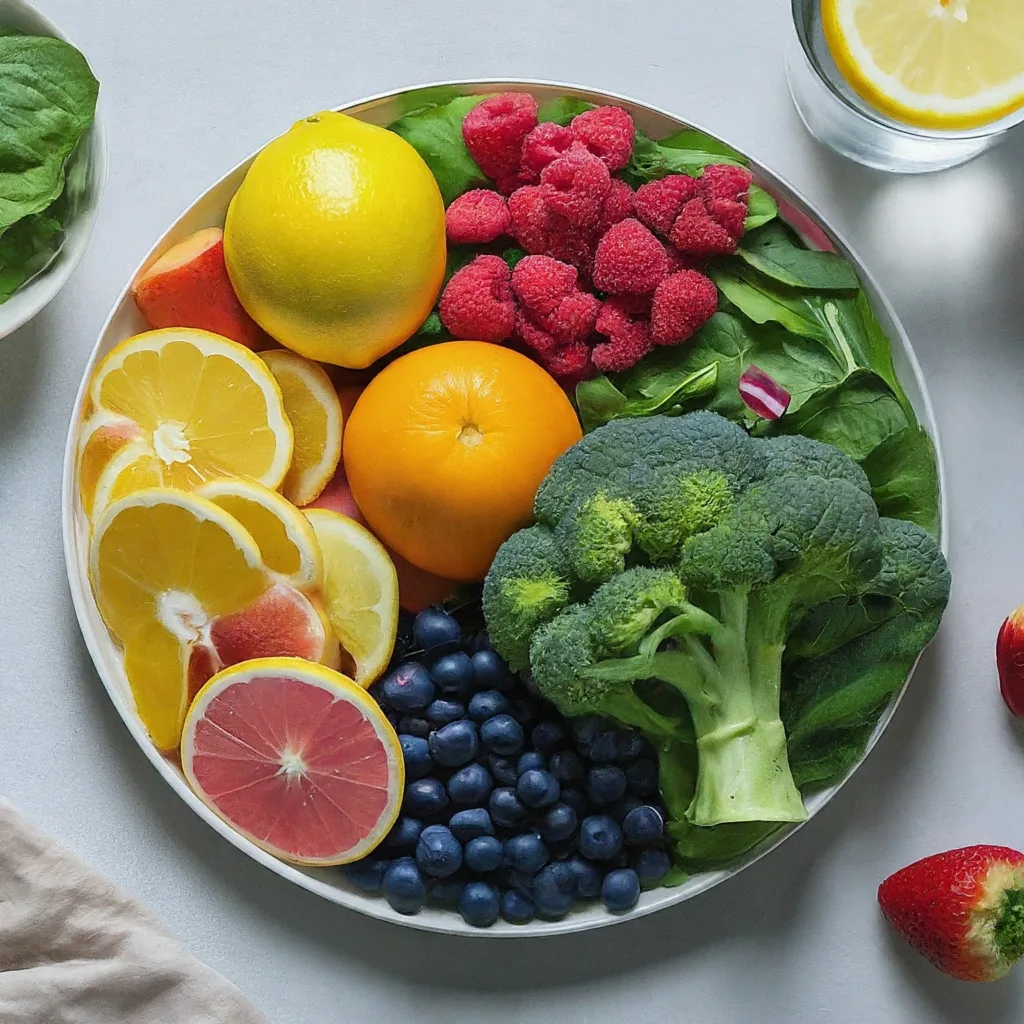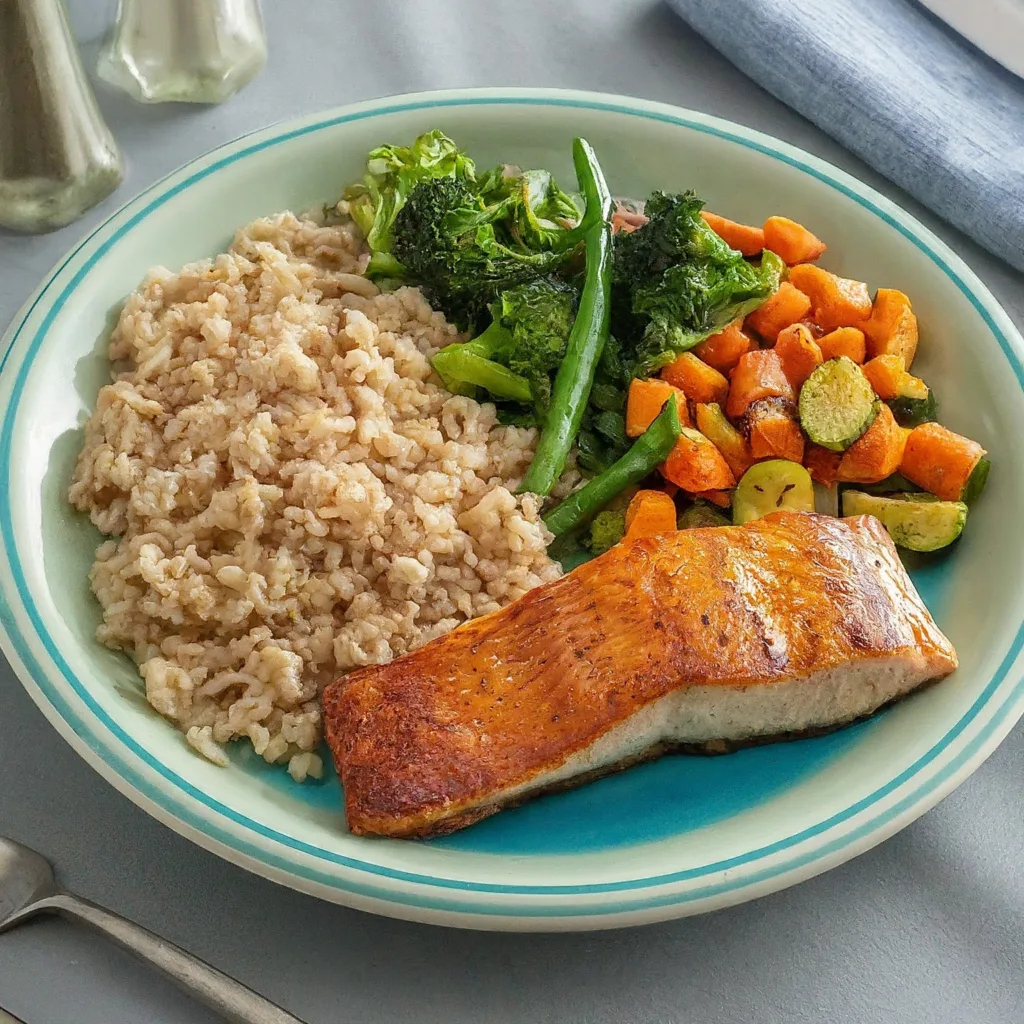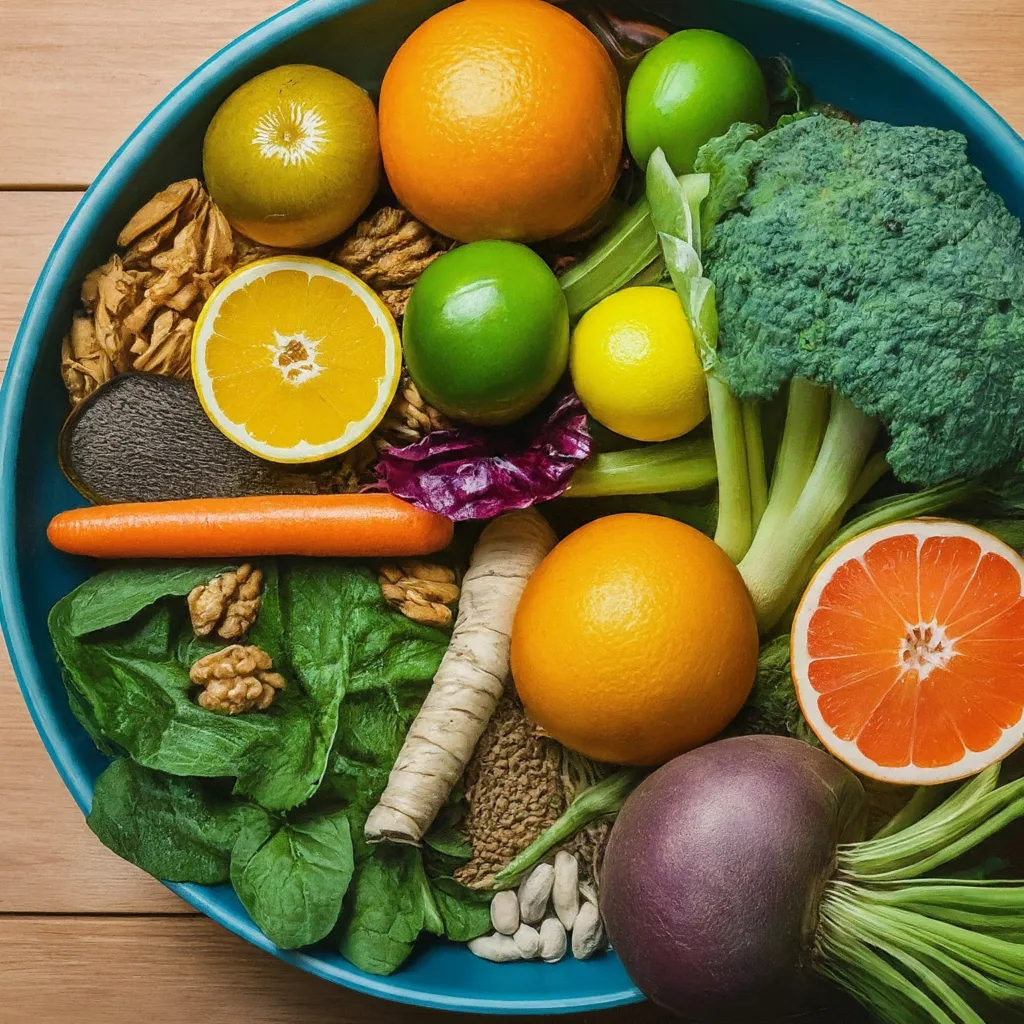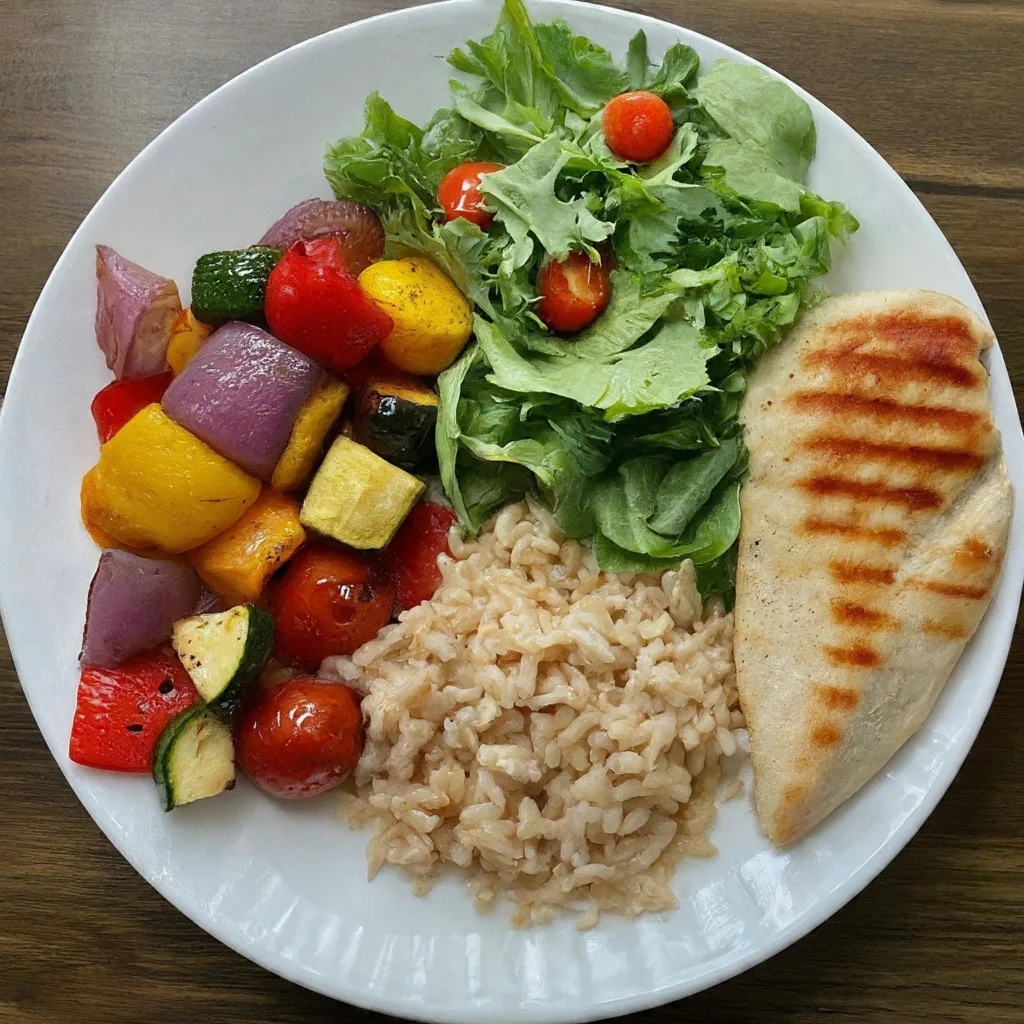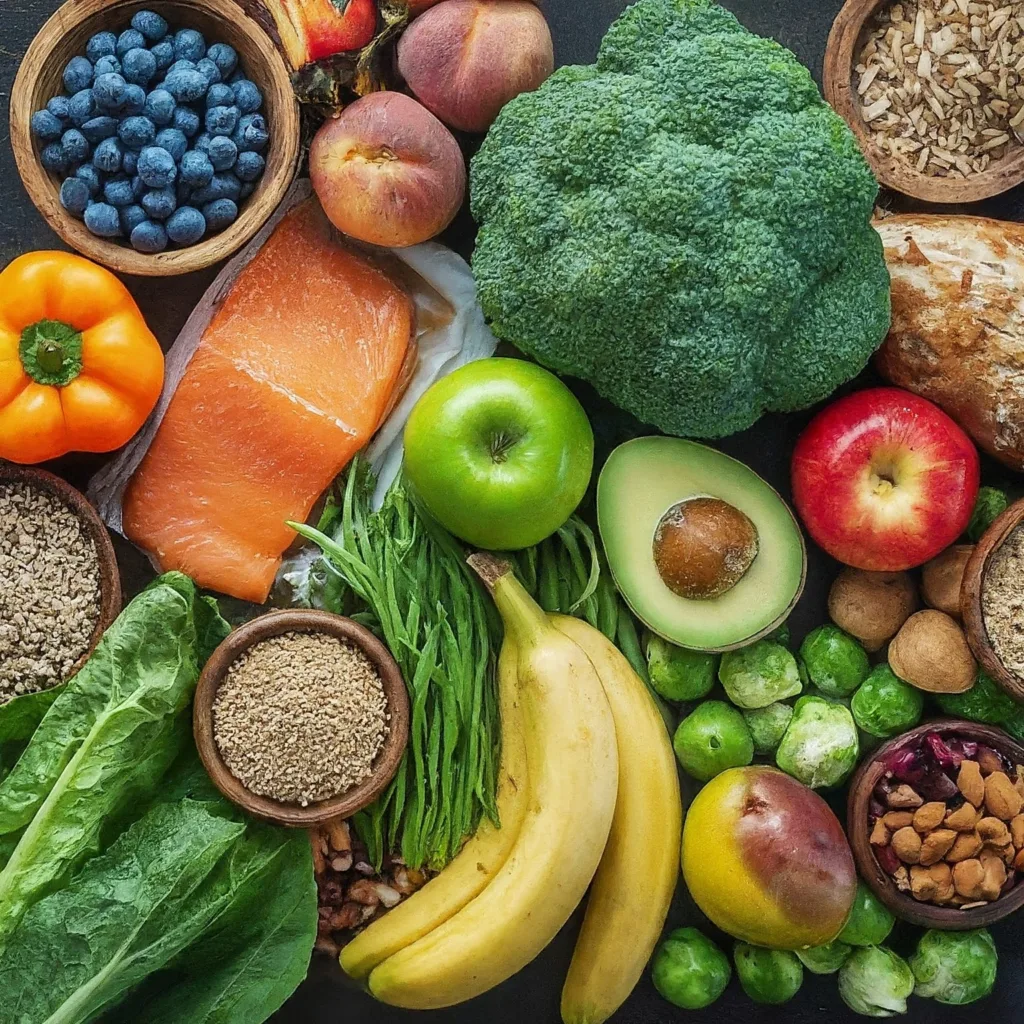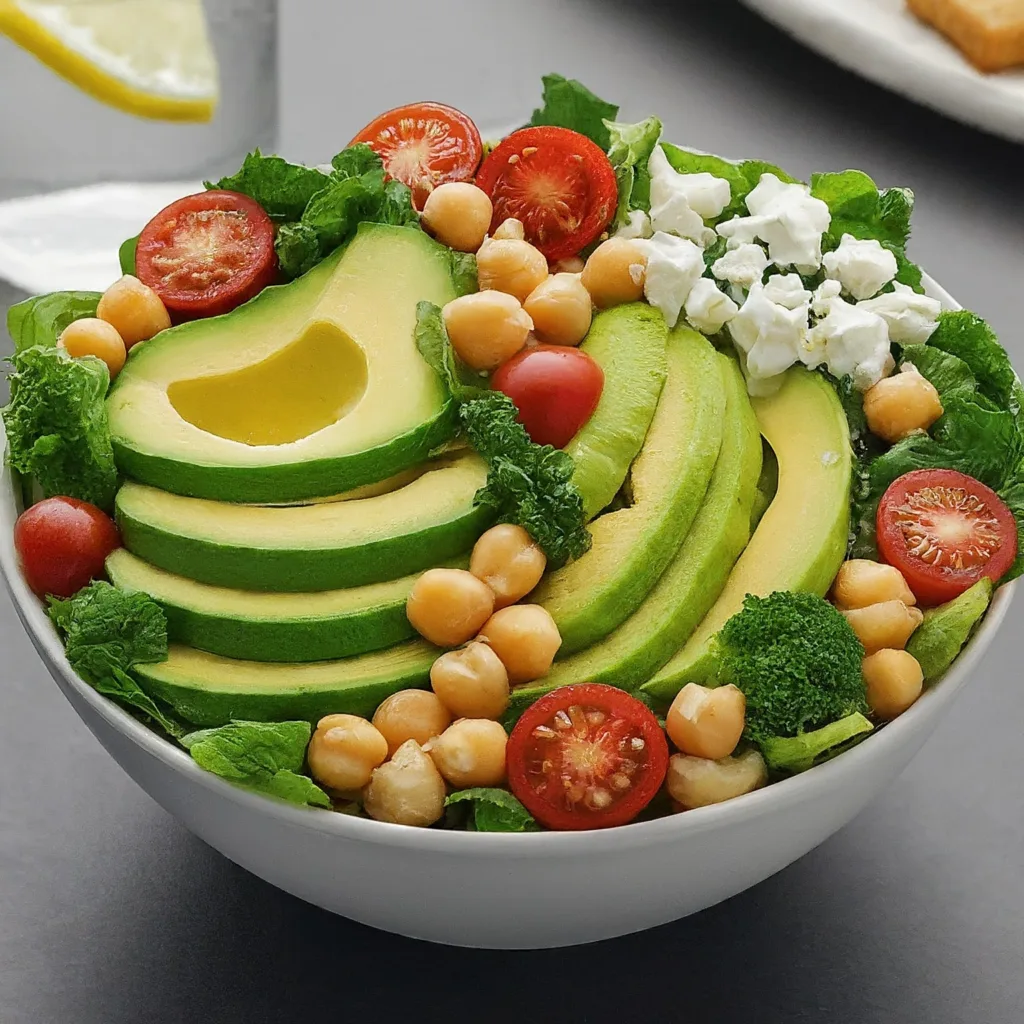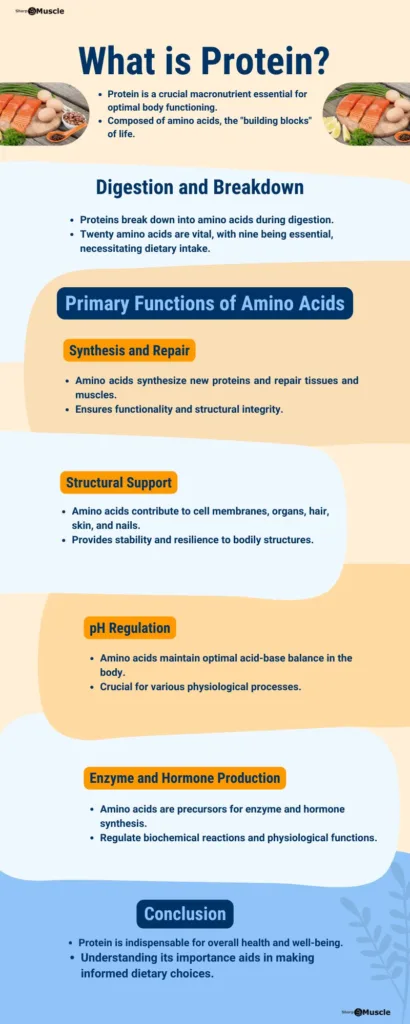Trying to create a calorie deficit to support weight loss? These 10 negative calorie foods or low calorie foods are packed with nutrients and can help you stay on track.
Losing weight is a common goal for many people, and one of the key components of successful weight loss is managing calorie consumption. While cutting calories can be challenging, incorporating low calorie foods into your diet can be a helpful strategy for creating a calorie deficit without sacrificing important nutrients.
In this article, we will explore the concept of low calories or “negative calorie” foods, discuss the benefits and science behind them, and share ten healthy foods that can support weight loss and overall health. Whether you’re looking to shed a few pounds or simply incorporate more nutrient-dense foods into your diet, this guide will provide you with the tools and knowledge you need to reach your goals.
What is Negative calorie foods or low calorie foods?

Low calories or negative calorie foods are foods that have a low calorie count relative to their volume or weight. Negative calorie foods are require more energy to digest than they provide, resulting in a net negative calorie intake. On the other hand, low calorie foods have a low calorie count relative to their weight or volume.
These foods can be helpful for weight loss when incorporated into a balanced diet and healthy lifestyle, but they are not a magic solution on their own. A varied diet that meets nutrient needs is key for overall health and well-being.
Negative calorie foods are typically plant-based, and many of them are high in fiber, water, and micronutrients such as vitamins and minerals. Examples of negative calorie foods include leafy greens, celery, cucumber, broccoli, berries, and tomatoes. These foods have a high nutrient density, meaning they provide a lot of nutrients relative to their calorie content.
Benefits of low calorie foods
Incorporating more low calorie, nutrient-dense foods into your diet can have a variety of positive effects on your health and well-being.
Here are some of the specific benefits of negative foods:
- Weight loss: Consuming low calorie foods can help reduce overall calorie intake and support weight loss goals. 1
- Improved digestion: Many of the low calorie foods mentioned, such as leafy greens and non-starchy vegetables, are high in fiber, which can support digestive health and regularity.
- Reduced inflammation: Foods such as broccoli and fish contain anti-inflammatory compounds that may help reduce inflammation in the body and lower the risk of chronic diseases.
- Improved heart health: Several of the low calorie foods mentioned, including leafy greens, berries, and fish, have been shown to support heart health by improving cholesterol levels and reducing the risk of heart disease.
- Lowered risk of chronic diseases: Regular consumption of low calorie foods that are high in nutrients, such as leafy greens, berries, and sweet potatoes, may help lower the risk of chronic diseases such as type 2 diabetes, cancer, and heart disease.
- Improved brain function: Foods such as berries and fish contain compounds that may support brain function and cognitive health.
Top 10 Low Calorie Foods
Looking for a tasty way to lose weight and get healthy? Look no further than these ten delicious and nutrient-packed foods! Not only are they low in calories, but they’re also packed with important macronutrients and micronutrients to fuel your body and keep you feeling your best. From leafy greens to juicy berries, these foods are sure to satisfy your cravings and help you reach your weight loss goals. So let’s dig in and discover the top ten low-calorie foods that should be on your plate right now!
1. Leafy Greens
Leafy greens like spinach, kale, and collard greens are very low in calories, and high in vitamins, minerals, and antioxidants, making them great for weight loss and overall health.
Research shows that consuming leafy greens regularly can lower the risk of chronic diseases such as heart disease and cancer. 2 3
A 100g serving of spinach has only 23 calories, 3g of protein, 0.4g of fat, and 2.2g of carbohydrates. It is also rich in vitamins A, C, and K, and minerals like iron and calcium.
2. Broccoli
Broccoli is low in calories and a cruciferous vegetable that is high in fiber, vitamins, and minerals.
Study has been shown to have anti-inflammatory and anti-cancer properties. It has been linked to a lower risk of cancer and can help support digestive health. Consuming broccoli regularly may also support heart health by lowering cholesterol levels. 4
A 100g serving of raw broccoli has only 34 calories, 2.8g of protein, 0.4g of fat, and 6g of carbohydrates. It is also rich in vitamins C and K, and minerals like potassium and iron.
3. Berries
Berries like strawberries, raspberries, and blueberries are high in antioxidants, vitamins, and minerals. Which can help reduce inflammation and improve your heart health. They are also low in calories, making them a great snack for weight loss.
Research suggests that regular consumption of berries may improve brain function and reduce the risk of chronic diseases such as heart disease and cancer. 5 6
A 100g serving of strawberries has only 33 calories, 0.7g of protein, 0.3g of fat, and 7.7g of carbohydrates. They are also rich in vitamin C and fiber.
4. Non-Starchy Vegetables
Vegetables like bell peppers, cucumbers, and tomatoes are low in calories and high in water, fiber, vitamins, and minerals. Which can help you feel full and satisfied. It can be easily incorporated into meals and snacks.
Consuming non-starchy vegetables regularly can support weight loss, improve digestion, and lower the risk of chronic diseases. 7
A 100g serving of bell pepper has only 31 calories, 1g of protein, 0.3g of fat, and 6g of carbohydrates. They are also rich in vitamin C and potassium.
5. Chicken Breast
Chicken breast is a lean source of protein and low in calories. Which can help support muscle growth and repair. It is also low in calories and can be easily prepared in a variety of ways.
Research suggests that consuming lean protein sources like chicken breast can support weight loss, improve muscle mass, and lower the risk of chronic diseases. 8 9
A 100g serving of skinless chicken breast has only 165 calories, 31g of protein, 3.6g of fat, and 0g of carbohydrates. It is also rich in vitamin B6 and niacin.
6. Fish
Fish like salmon, tuna, and cod are low in calories and high in protein, healthy fats, and vitamins.
Fish is a great source of lean protein and omega-3 fatty acids, which have been shown to support heart health, brain function, and reduce inflammation in the body. 10 11 12
Research suggests that consuming fish regularly can lower the risk of chronic diseases such as heart disease and depression. 13
A 100g serving of salmon has only 208 calories, 20g of protein, 13g of fat, and 0g of carbohydrates. It is also rich in omega-3 fatty acids, vitamin D, and vitamin B12.
7. Eggs
Eggs are a great source of protein, healthy fats, and important vitamins and minerals. They can help you feel full and satisfied, making them a great addition to a weight loss diet. They are also versatile and can be prepared in many different ways.
Research suggests that consuming eggs regularly can support weight loss, improve cholesterol levels, and lower the risk of chronic diseases. 14 15
A large egg has only 78 calories, 6g of protein, 5g of fat, and 0.6g of carbohydrates. They are also rich in vitamins and minerals like vitamin B12 and selenium.
8. Greek Yogurt
Greek yogurt is high in protein and low in calories, making it a great snack for weight loss. It is also rich in probiotics, which can improve gut health, and also support digestive health and immune function.
Research suggests that consuming Greek yogurt regularly can also support weight loss and lower the risk of chronic diseases such as type 2 diabetes. 16 17
A 100g serving of plain Greek yogurt has only 59 calories, 10g of protein, 0.4g of fat, and 3.4g of carbohydrates. It is also rich in calcium and vitamin B12.
9. Sweet Potatoes
Sweet potatoes are a great source of complex carbohydrates, fiber, vitamins, and minerals, making them a nutritious and filling choice for weight loss and overall health. They can help regulate blood sugar levels and improve digestive health. They are also low in calories and can be prepared in many different ways.
Research suggests that consuming sweet potatoes regularly can improve blood sugar control and lower the risk of chronic diseases. 18
A 100g serving of sweet potato has only 86 calories, 1.6g of protein, 0.1g of fat, and 20g of carbohydrates. They are also rich in fiber, vitamins A and C, and potassium.
10. Quinoa
Quinoa is a gluten-free grain that is high in protein, fiber, and important vitamins and minerals. It can help regulate blood sugar levels and improve your digestive health. It is also low in calories and can be used as a substitute for rice or other grains in many different dishes.
Research suggests that consuming quinoa regularly can support weight loss, improve blood sugar control, and lower the risk of chronic diseases such as heart disease and type 2 diabetes. 19 20
A 100g serving of cooked quinoa has only 120 calories, 4g of protein, 1.9g of fat, and 21g of carbohydrates. It is also rich in fiber, vitamins B and E, and minerals like iron and magnesium.
Bottom line
Incorporating low-calorie foods into your diet is an excellent way to support weight loss and improve overall health.
By focusing on nutrient-dense options such as leafy greens, berries, and non-starchy vegetables, you can consume foods that are low in calories while still providing your body with the necessary vitamins, minerals, and fiber it needs to function optimally. Additionally, incorporating lean protein sources like chicken breast, fish, and eggs can help keep you feeling full and satisfied, making it easier to stick to a healthy eating plan.
Remember, healthy eating is not about deprivation or restriction, but rather about finding a balance that works for you and your body. By incorporating a variety of low calorie, nutrient-dense foods into your diet, you can support your overall health and well-being while still enjoying delicious and satisfying meals.
- Kim JY. “Optimal Diet Strategies for Weight Loss and Weight Loss Maintenance.” J Obes Metab Syndr. 2021 Mar 30;30(1):20-31. doi: 10.7570/jomes20065. PMID: 33107442; PMCID: PMC8017325.[↩]
- Pollock RL. “The effect of green leafy and cruciferous vegetable intake on the incidence of cardiovascular disease: A meta-analysis.” JRSM Cardiovasc Dis. 2016 Aug 1;5:2048004016661435. doi: 10.1177/2048004016661435. PMID: 27540481; PMCID: PMC4973479.[↩]
- Aune D, Giovannucci E, Boffetta P, Fadnes LT, Keum N, Norat T, Greenwood DC, Riboli E, Vatten LJ, Tonstad S. “Fruit and vegetable intake and the risk of cardiovascular disease, total cancer and all-cause mortality-a systematic review and dose-response meta-analysis of prospective studies.” Int J Epidemiol. 2017 Jun 1;46(3):1029-1056. doi: 10.1093/ije/dyw319. PMID: 28338764; PMCID: PMC5837313.[↩]
- Nandini DB, Rao RS, Deepak BS, Reddy PB. “Sulforaphane in broccoli: The green chemoprevention!! Role in cancer prevention and therapy.” J Oral Maxillofac Pathol. 2020 May-Aug;24(2):405. doi: 10.4103/jomfp.JOMFP_126_19. Epub 2020 Sep 9. PMID: 33456268; PMCID: PMC7802872.[↩]
- Subash S, Essa MM, Al-Adawi S, Memon MA, Manivasagam T, Akbar M. “Neuroprotective effects of berry fruits on neurodegenerative diseases.” Neural Regen Res. 2014 Aug 15;9(16):1557-66. doi: 10.4103/1673-5374.139483. PMID: 25317174; PMCID: PMC4192974.[↩]
- Kalt W, Cassidy A, Howard LR, Krikorian R, Stull AJ, Tremblay F, Zamora-Ros R. “Recent Research on the Health Benefits of Blueberries and Their Anthocyanins.” Adv Nutr. 2020 Mar 1;11(2):224-236. doi: 10.1093/advances/nmz065. PMID: 31329250; PMCID: PMC7442370.[↩]
- Pem D, Jeewon R. “Fruit and Vegetable Intake: Benefits and Progress of Nutrition Education Interventions- Narrative Review Article.” Iran J Public Health. 2015 Oct;44(10):1309-21. PMID: 26576343; PMCID: PMC4644575.[↩]
- Marangoni F, Corsello G, Cricelli C, Ferrara N, Ghiselli A, Lucchin L, Poli A. “Role of poultry meat in a balanced diet aimed at maintaining health and wellbeing: an Italian consensus document.” Food Nutr Res. 2015 Jun 9;59:27606. doi: 10.3402/fnr.v59.27606. PMID: 26065493; PMCID: PMC4462824.[↩]
- Hoffman JR, Falvo MJ. “Protein – Which is Best?” J Sports Sci Med. 2004 Sep 1;3(3):118-30. PMID: 24482589; PMCID: PMC3905294. Available from: https://www.ncbi.nlm.nih.gov/pmc/articles/PMC3905294/.[↩]
- Swanson D, Block R, Mousa SA. “Omega-3 fatty acids EPA and DHA: health benefits throughout life.” Adv Nutr. 2012 Jan;3(1):1-7. doi: 10.3945/an.111.000893. Epub 2012 Jan 5. PMID: 22332096; PMCID: PMC3262608.[↩]
- DiNicolantonio JJ, O’Keefe JH. “The Importance of Marine Omega-3s for Brain Development and the Prevention and Treatment of Behavior, Mood, and Other Brain Disorders.” Nutrients. 2020 Aug 4;12(8):2333. doi: 10.3390/nu12082333. PMID: 32759851; PMCID: PMC7468918.[↩]
- Ashish Chaddha, MD; Kim A. Eagle, MD. “Omega-3 Fatty Acids and Heart Health.” AHA/ASA Journals. doi: 10.1161/CIRCULATIONAHA.114.015176.[↩]
- Jayedi A, Shab-Bidar S. “Fish Consumption and the Risk of Chronic Disease: An Umbrella Review of Meta-Analyses of Prospective Cohort Studies.” Adv Nutr. 2020 Sep 1;11(5):1123-1133. doi: 10.1093/advances/nmaa029. PMID: 32207773; PMCID: PMC7490170.[↩]
- Fuller NR, Sainsbury A, Caterson ID, Markovic TP. “Egg Consumption and Human Cardio-Metabolic Health in People with and without Diabetes.” Nutrients. 2015 Sep 3;7(9):7399-420. doi: 10.3390/nu7095344. PMID: 26404366; PMCID: PMC4586539.[↩]
- Sugano M, Matsuoka R. “Nutritional Viewpoints on Eggs and Cholesterol.” Foods. 2021 Feb 25;10(3):494. doi: 10.3390/foods10030494. PMID: 33669005; PMCID: PMC7996514.[↩]
- Jordi Salas-Salvadó, Marta Guasch-Ferré, Andrés Díaz-López, Nancy Babio, Yogurt and Diabetes: Overview of Recent Observational Studies, The Journal of Nutrition, Volume 147, Issue 7, July 2017, Pages 1452S–1461S, https://doi.org/10.3945/jn.117.248229.[↩]
- Eales J, Lenoir-Wijnkoop I, King S, Wood H, Kok FJ, Shamir R, Prentice A, Edwards M, Glanville J, Atkinson RL. “Is consuming yoghurt associated with weight management outcomes? Results from a systematic review.” Int J Obes (Lond). 2016 May;40(5):731-46. doi: 10.1038/ijo.2015.202. Epub 2015 Oct 7. PMID: 26443336; PMCID: PMC4856732.[↩]
- Ooi CP, Loke SC. “Sweet potato for type 2 diabetes mellitus.” Cochrane Database Syst Rev. 2013 Sep 3;2013(9):CD009128. doi: 10.1002/14651858.CD009128.pub3. PMID: 24000051; PMCID: PMC6486146.[↩]
- Díaz-Rizzolo DA, Acar-Denizli N, Kostov B, Roura E, Sisó-Almirall A, Delicado P, Gomis R. “Glycaemia Fluctuations Improvement in Old-Age Prediabetic Subjects Consuming a Quinoa-Based Diet: A Pilot Study.” Nutrients. 2022 Jun 1;14(11):2331. doi: 10.3390/nu14112331. PMID: 35684131; PMCID: PMC9183167.[↩]
- Li L, Lietz G, Bal W, Watson A, Morfey B, Seal C. “Effects of Quinoa (Chenopodium quinoa Willd.) Consumption on Markers of CVD Risk.” Nutrients. 2018 Jun 16;10(6):777. doi: 10.3390/nu10060777. PMID: 29914146; PMCID: PMC6024323.[↩]


